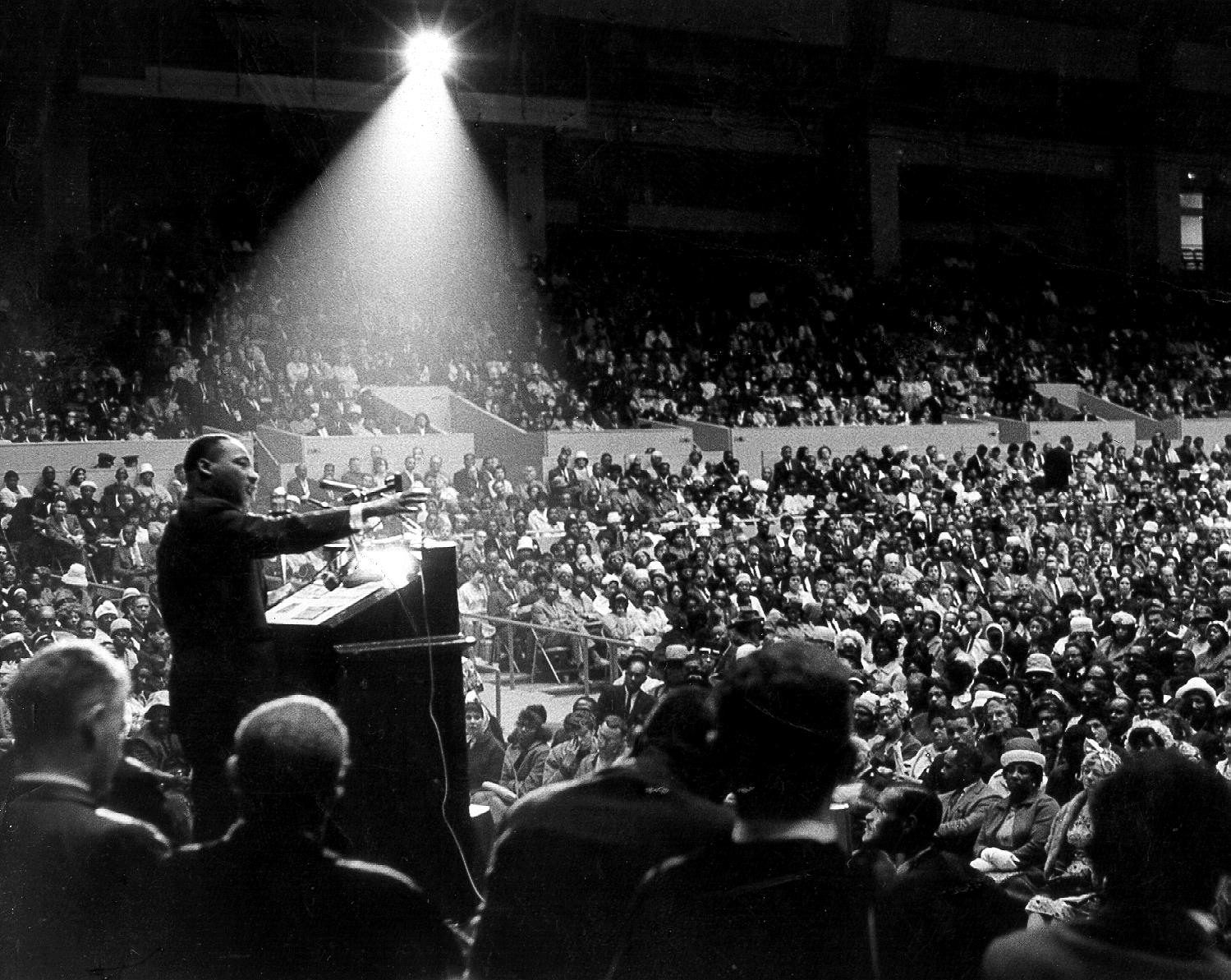The Rev. Dr. Martin Luther King, Jr. was a radical. He was called “the most dangerous man in America” by the FBI and had a 17,000 page FBI file at the time of his death.
It wasn’t just KKK members or those in positions of power who disagreed with him or hated him. As Cornel West explains in his book The Radical King, by the time of King's death, most of the country didn’t like him. “There was intense FBI pressure, including attempts to make him commit suicide,” West reminds us. “The black civil rights leadership was trashing him. The white establishment had rejected him. The young black revolutionaries were dismissing him.” Over the course of his life, King was not a man who was loved by most; in fact, he was hated by a select few. He was an incredibly maligned man by the time he died. And yet we never talk about that.
Instead, we praise and honor him and hold him up as the highest standard of the struggle for justice. We as a society measure all who struggle for justice against Dr. King, but not against who he actually was. We measure those who struggle for justice against who we have decided Dr. King was: a sanitized version of the actual man. As a society, we tell activists that their protests are too unruly, their demands too harsh, their voices too strident, their methods too stringent. We have decided as a society that there is one way to struggle for justice, and it’s the way we like to imagine King struggled for justice — even though it’s not the way he actually did.
In the summer of 2016, protesters took to the streets around the country, condemning police brutality and proclaiming that black lives matter. As has happened over and over again with these sorts of protests, many people criticized their methods and tactics. In a press conference, Atlanta Mayor Kasim Reed stated “Dr. King would never take a freeway.”
Anyone remember the powerful thing King organized: the marches from Selma to Montgomery? The ones that entailed several hundred people walking down a highway and crossing a bridge, blocking cars from being able to drive on it? The flawed understanding of King is everywhere, and it has seeped into our society’s understanding of what is acceptable or appropriate in the struggle for racial justice.

